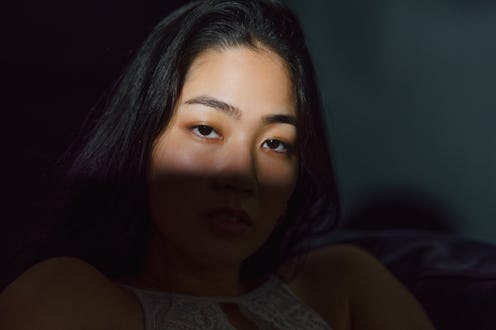
There are those who would say that sexism and rape culture don’t exist — at least not in the United States — but feminist writer Jessica Valenti is here once again to set them straight. In her latest book, Sex Object, she tackles sexism on an individual level, showing how American attitudes toward women have impacted her personally. While she doesn’t try to speak to the experiences of her entire gender, many of her memoir’s takeaways apply to women on a broad scale, and at times, even a global one.
Sex Object is unflinching in its look at some of the appalling cultural norms that result from objectification, such as women being more commonly attacked online and some men treating consent as if it is optional. At the same time, Valenti maintains her sense of humor and weaves in comical anecdotes, lightening up often painful truths. I guarantee that every woman will find at least one relatable experience, if not many more; the behaviors that she highlights and the questions that she raises are as familiar as they are frustrating.
Below are seven of the many ways that cis women like Valenti are affected by sexism in our culture, based on the stories she shares in Sex Object.
1. We’re targets for harassment.
Valenti’s stories of harassment include being trolled online, having men rub up on her and/or expose themselves on the subway, receiving inappropriate attention from male teachers, and more. Sadly, virtually all of us can relate to many. “We are trapped on the train, in the crowd, in the street, in the classroom,” she writes. “Public spaces are not really public for you, but a series of surprise private moments that you can’t prevent or erase.”
2. Sexual assault is common.
Although our world “knows what happens to women is wrong, it has also accepted this wrongness as inevitable,” writes Valenti. In spite of the number of men who take advantage of opportunities to prey on women, many escape with a light punishment, if one at all. We live in a country where you can get only a six-month sentence after being convicted of sexual assault, including with intent to rape. Hello, rape culture.
3. We deal with frequent fear.
So many experiences that shouldn’t be scary are when you’re a woman. Valenti is not alone in knowing the worry that a cab ride won’t actually be a safe ride home; the discomfort of ending up on a train car alone with a male stranger or the anxiety that a man will react violently to being rejected. These fears are based in reality, so it’s no wonder they’re so common.
4. Men’s needs are placed above women’s.
Sexism puts women in a position in which we often feel like men’s desires are more important than ours. For example, Valenti had a college boyfriend who thought it was unreasonable for her to expect an orgasm every time they had sex. (You know he had to be expecting one for himself, though.) The idea is so ingrained that she found that she still accepted it as an adult. Her realization came when her husband’s friend propositioned her and her first reaction was to discourage him gently, without letting him know how insulting she found it.
5. Slut shaming rears its ugly head.
Slut shaming can come from anyone, but the recipients are typically women. In spite of being seen as sex objects, women aren’t supposed to enjoy sex and are judged when they seem to. Valenti’s own mother told her she would never find someone to marry if she kept doing it. Later, her ex-boyfriend and his friends taunted her with insults like “whore” and “slut” after she hooked up with one of his friends post-breakup.
6. Our self-worth can suffer.
When society treats you as a sex object, it is inevitable that your appearance will impact your perception of yourself. Valenti recalls learning from her male friends that there were categories of girls, and being a “fat girl” or an “ugly” girl was the worst. She agonized over her appearance until she developed breasts and finally became a “sexy girl.” Never mind her interests, hobbies, or personality, right?
7. People make unfair assumptions.
In elementary school, Valenti played Nancy in a production called Little Mary Sunshine, and her 11-year-old cast mate told her he thought she’d been given the part because of her “figure.” I won’t deny that appearance factors into casting decisions, but his reasoning fails to take into account any other considerations, like her acting skills or work ethic. It is just another hazard of being a women.
Images: recep-bg/E+/Getty Images; Giphy (7)